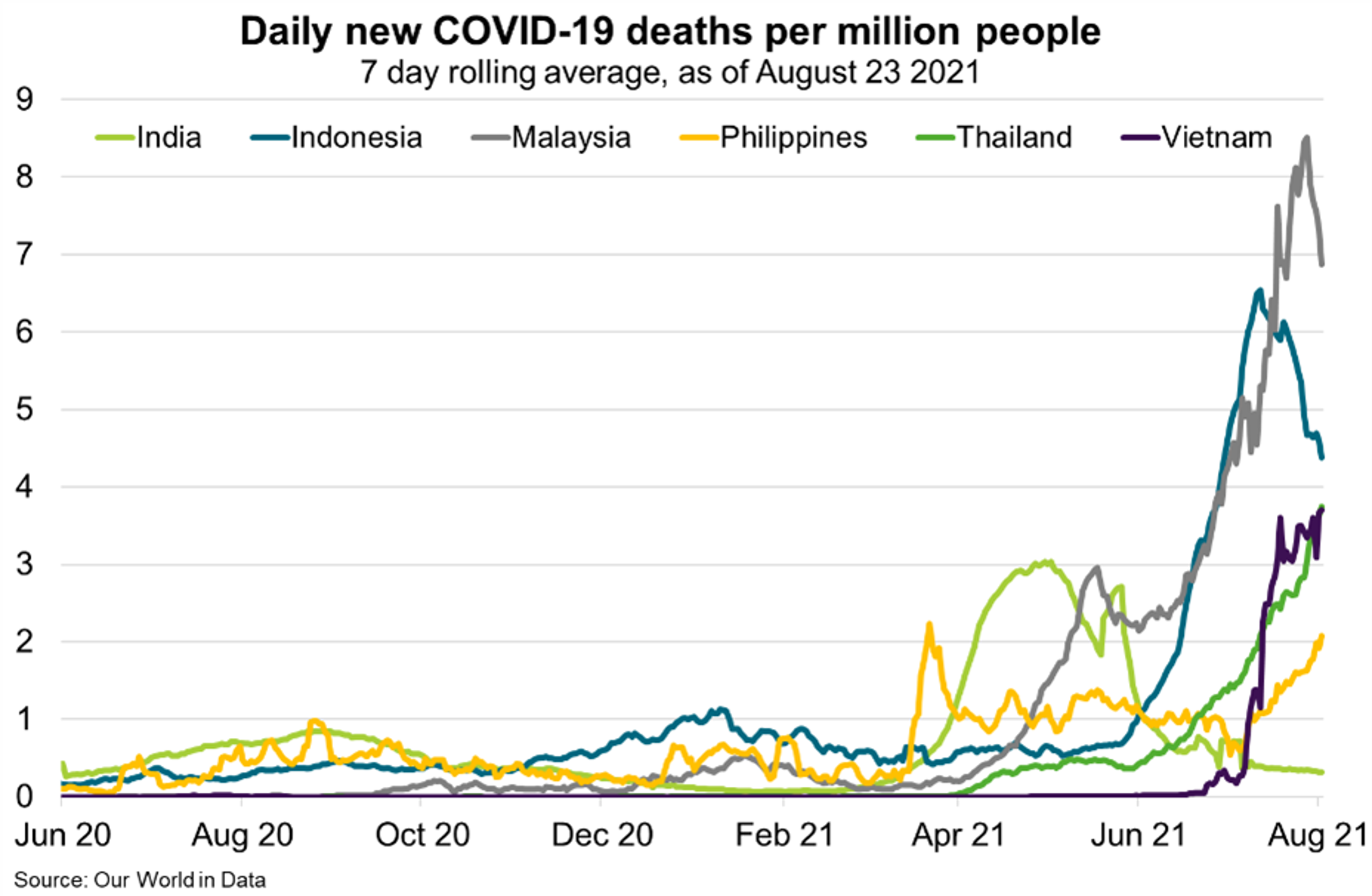Malaysia’s latest COVID-19 outbreak continues to escalate despite a state of emergency and increasingly stringent restrictions that culminated in a national lockdown from June 1 to August 13. The total number of COVID-19 cases has passed 1.5 million and daily recorded deaths reached a new record in August. The public health system is stretched—with widespread reported shortages of hospital beds and oxygen.
The health emergency is weighing on the economy. GDP shrank on a quarterly basis in Q2 2021 and the central bank slashed its 2021 GDP growth target to 3% to 4%, versus 6% to 7.5% previously. Vaccination continues apace; 40% of the population are fully inoculated and 56% have received at least one dose. This sets the stage for a recovery towards the end of 2021.
However, persistent political uncertainty adds to economic headwinds. Prime Minister Muhyiddin and his full cabinet tendered their resignations last week after seemingly losing parliamentary majority and ahead of a long-pending vote of confidence in September. Parliament sat in late July for the first time in seven months, but was adjourned prematurely until September, due to COVID-19 concerns. While the state of emergency accorded Prime Minister Muhyiddin greater executive powers to combat COVID-19, the prolonged suspension postponed debates on a raft of issues. A royal statement described elections in the near future as ‘not the best option’ given the COVID-19 crisis. Ismail Sabri Yaakob was subsequently appointed prime minister by King Sultan Abdullah of Pahang last Friday. However, long-running political uncertainty may continue given any new government is unlikely to command a strong parliamentary majority. While Malaysia remains one of the strongest democracies in Southeast Asia, this poses continued risks to policy predictability in Australia’s 10th largest export market.

